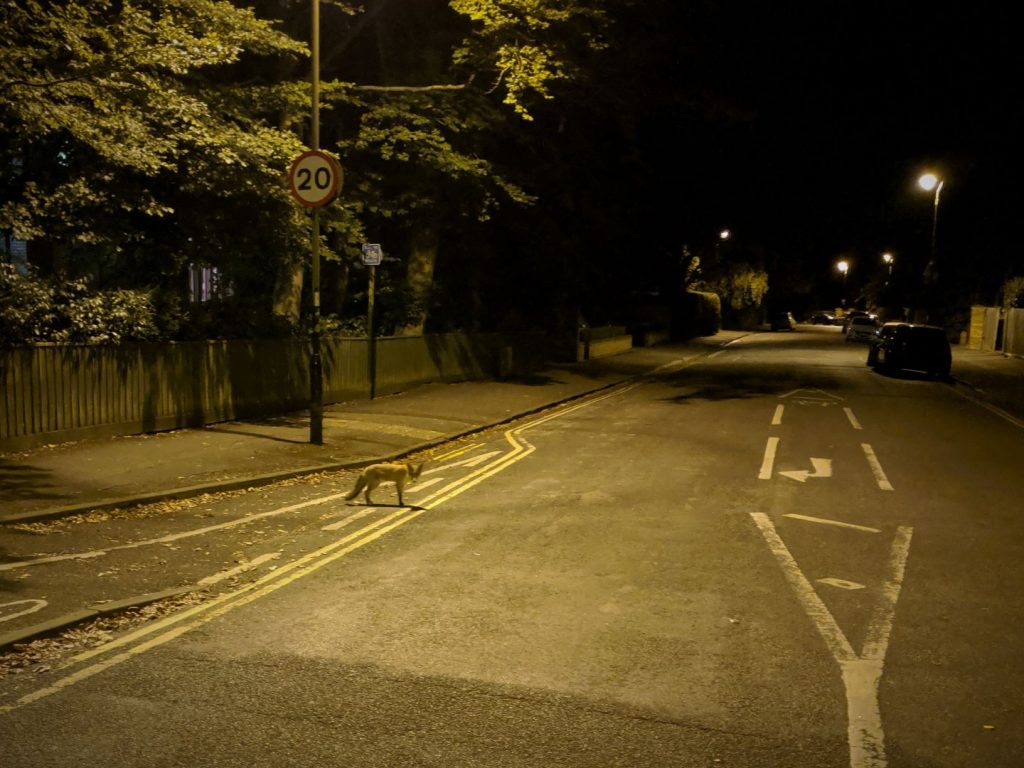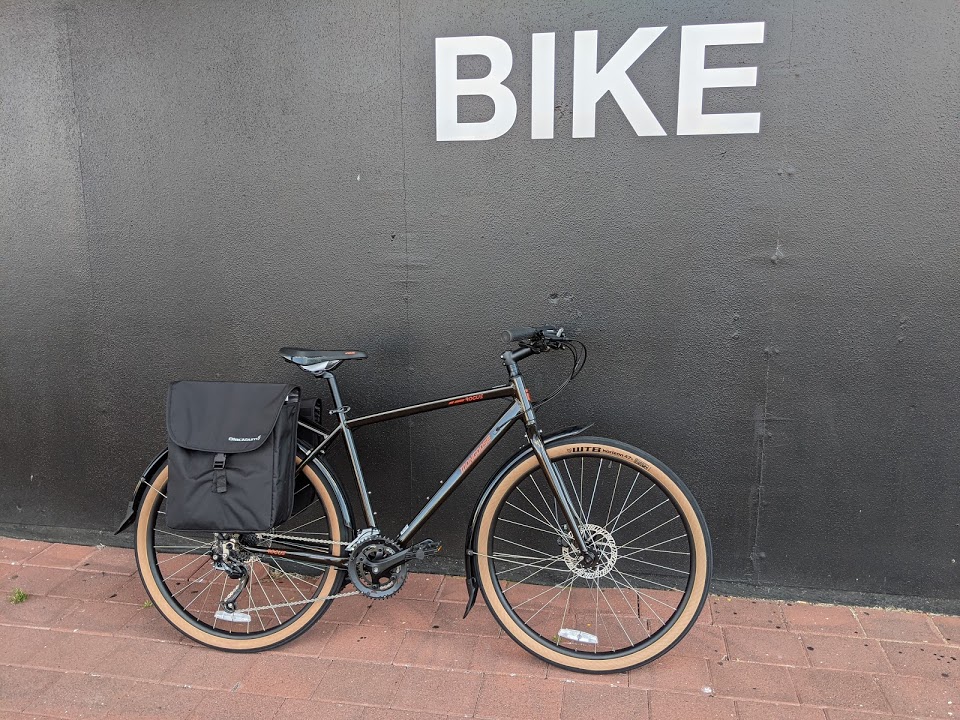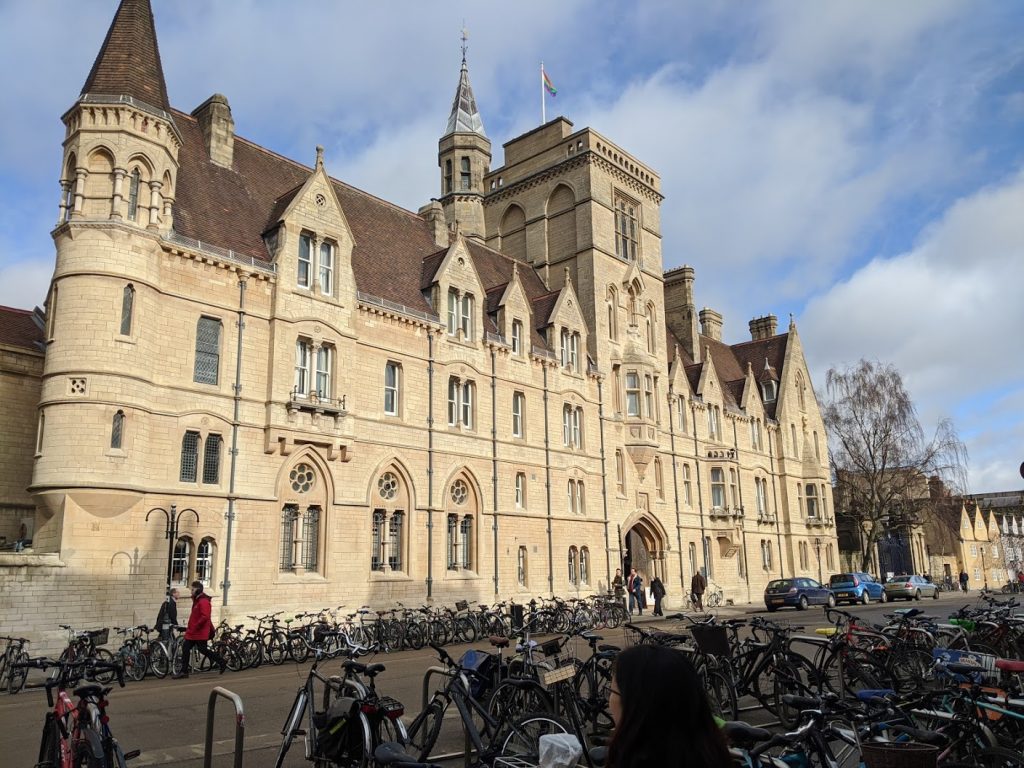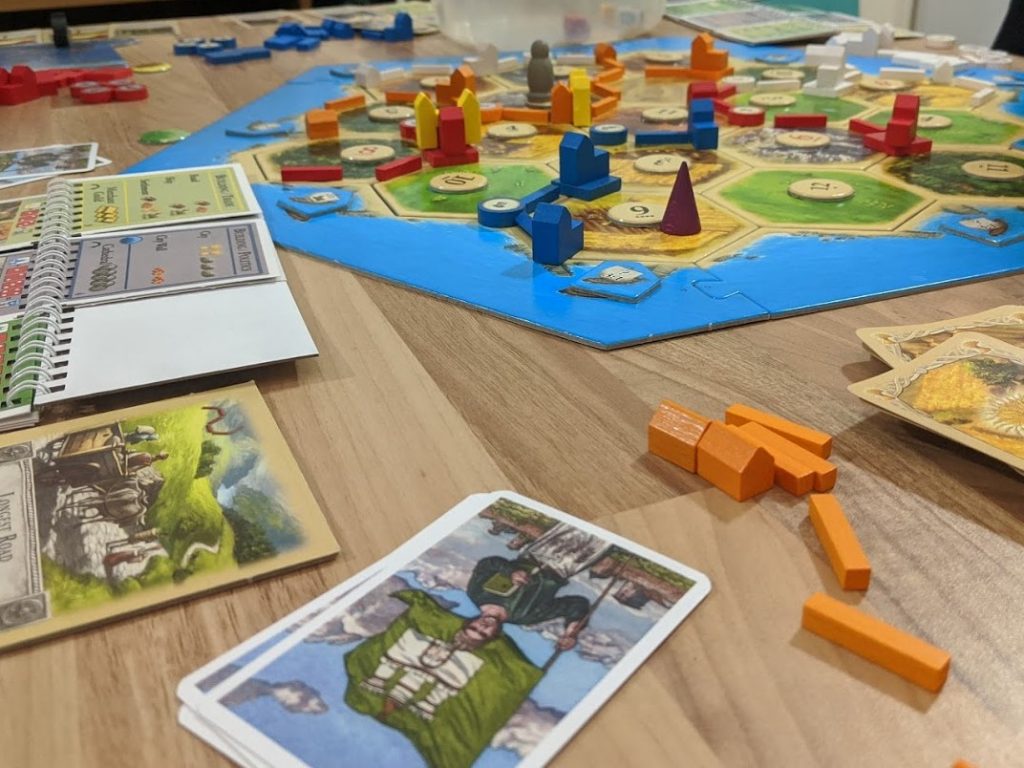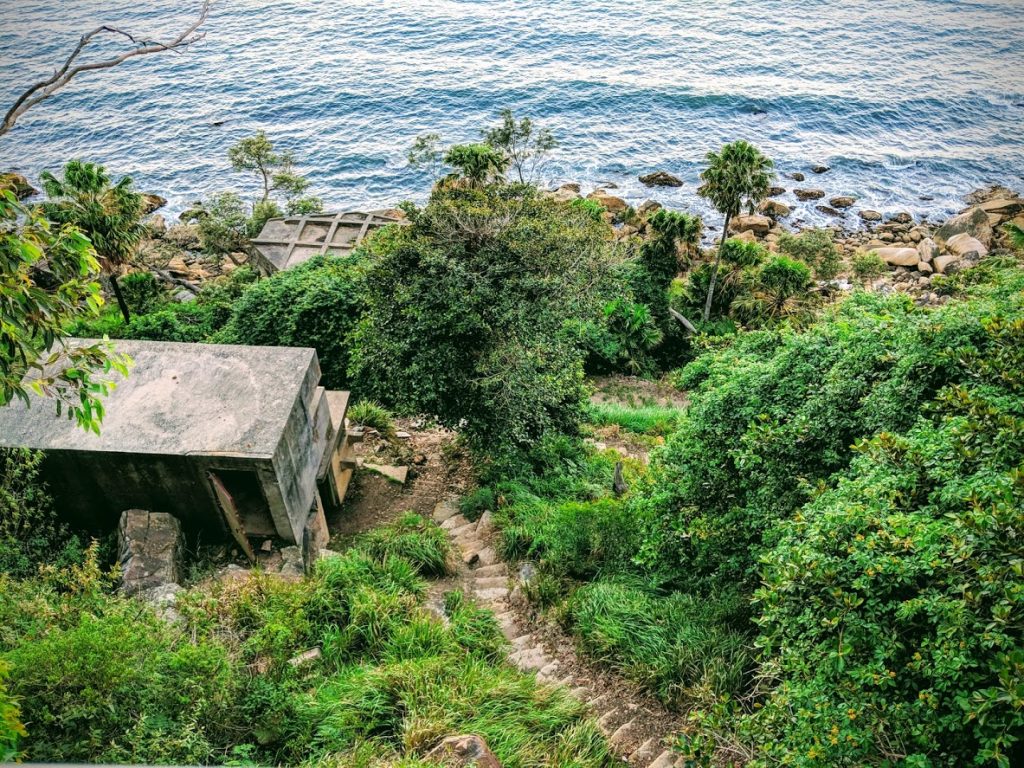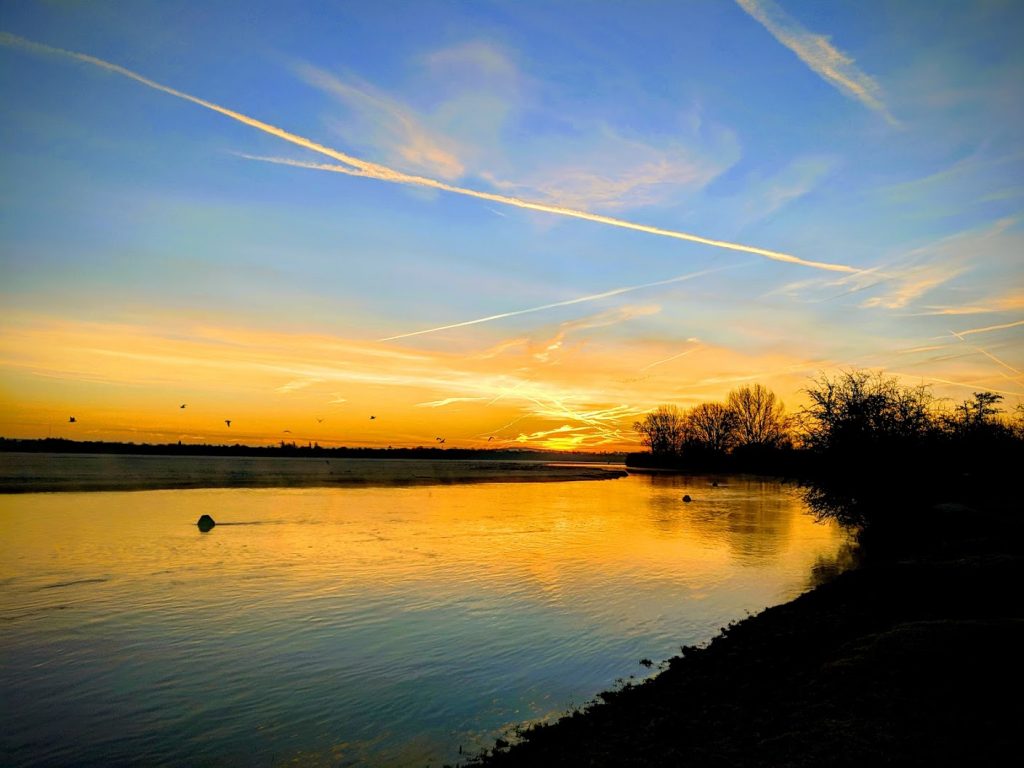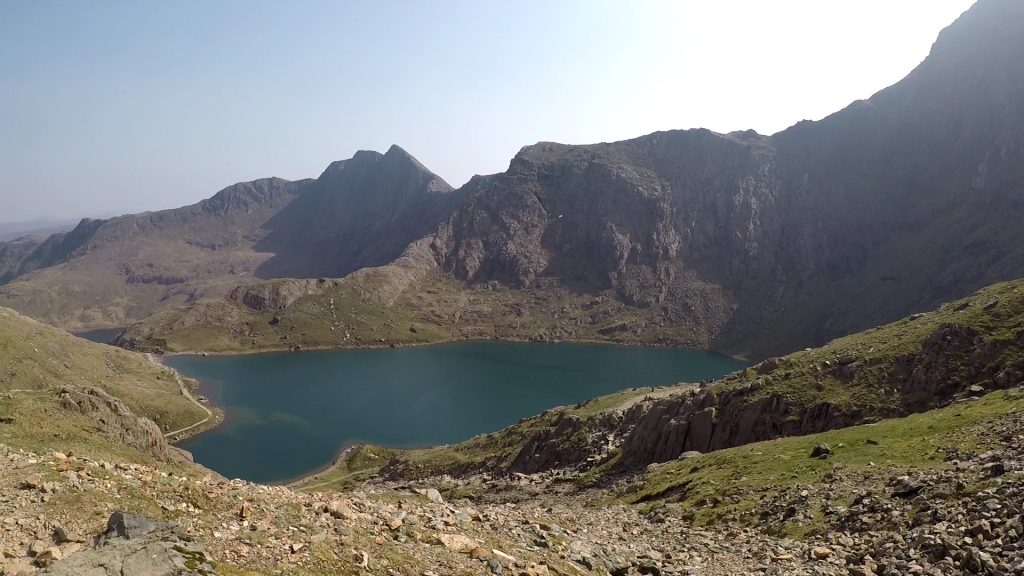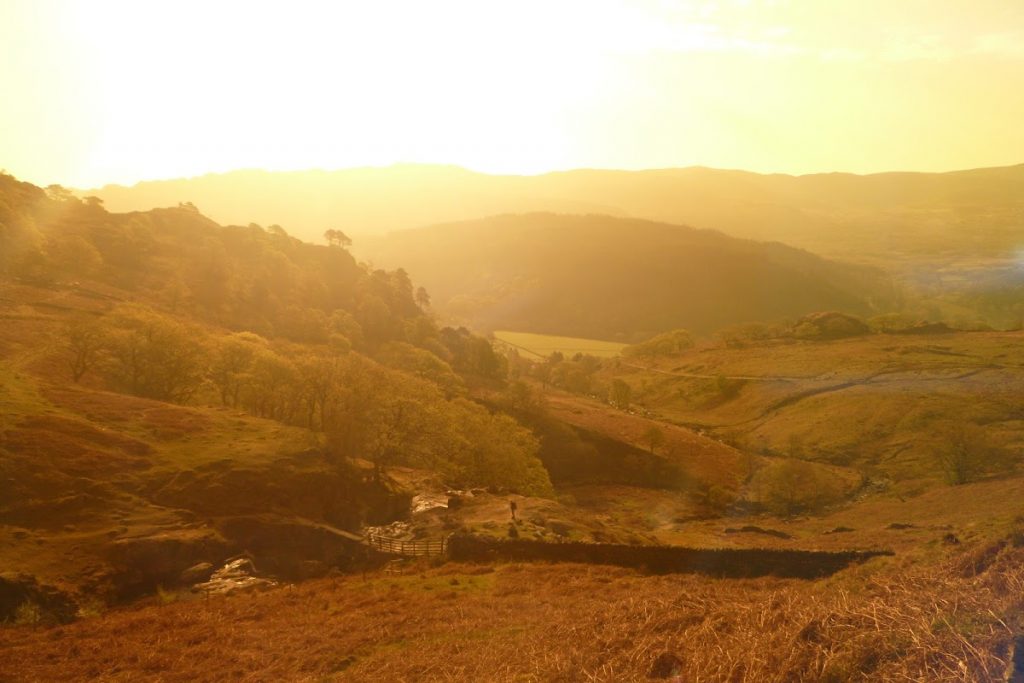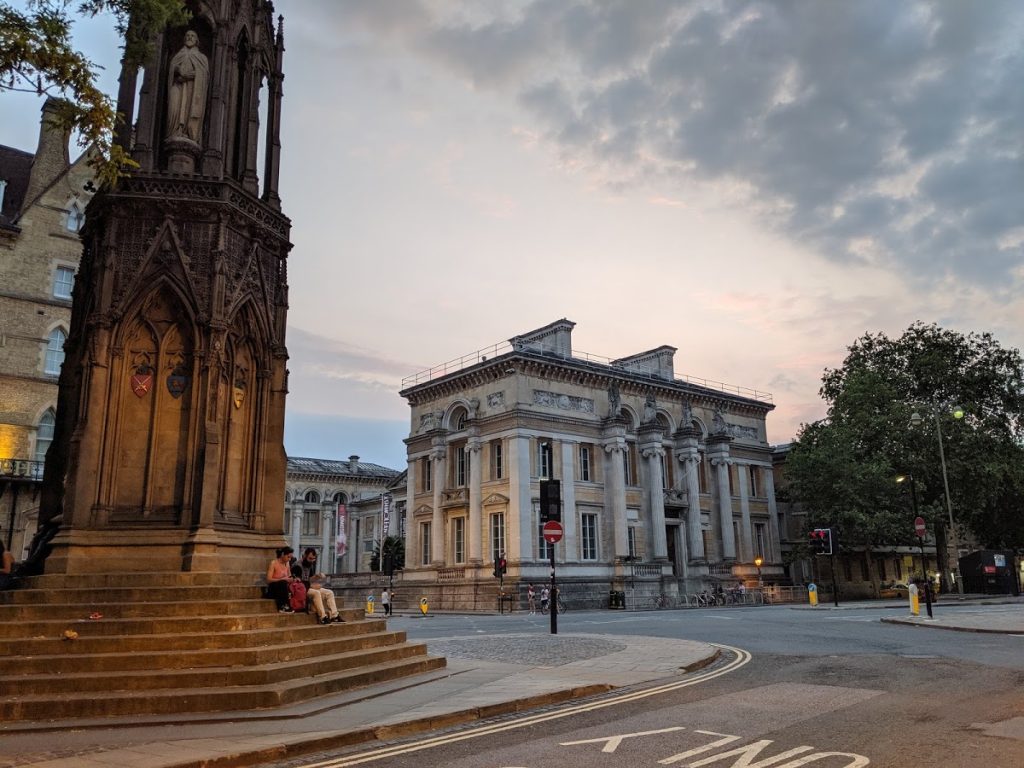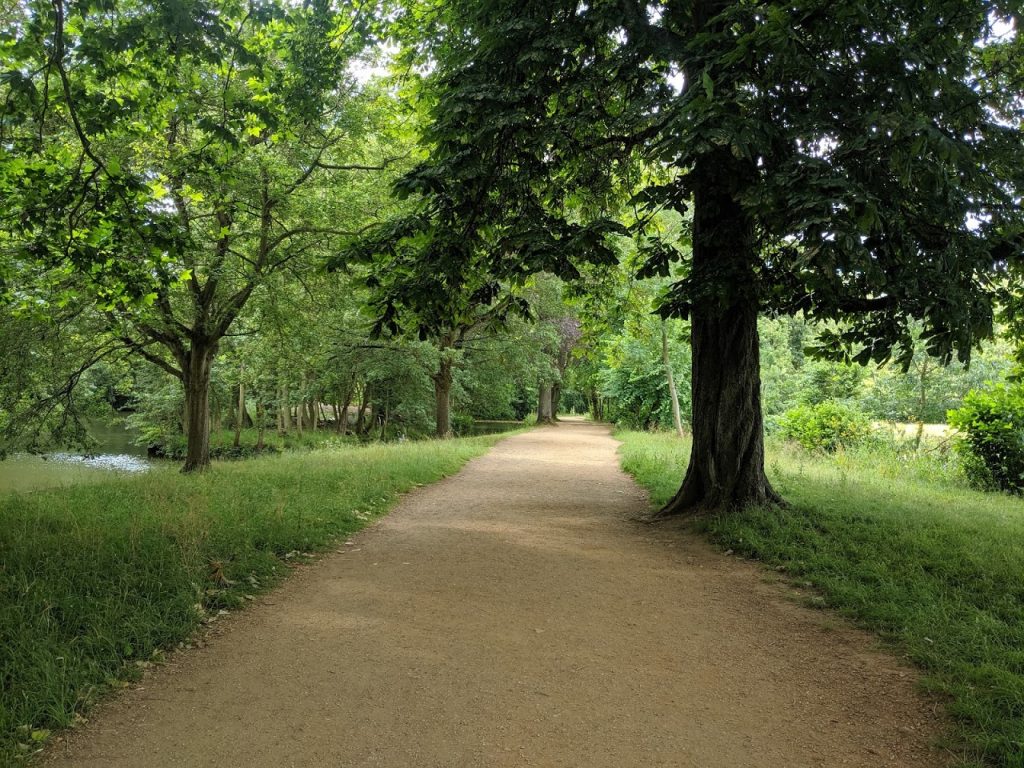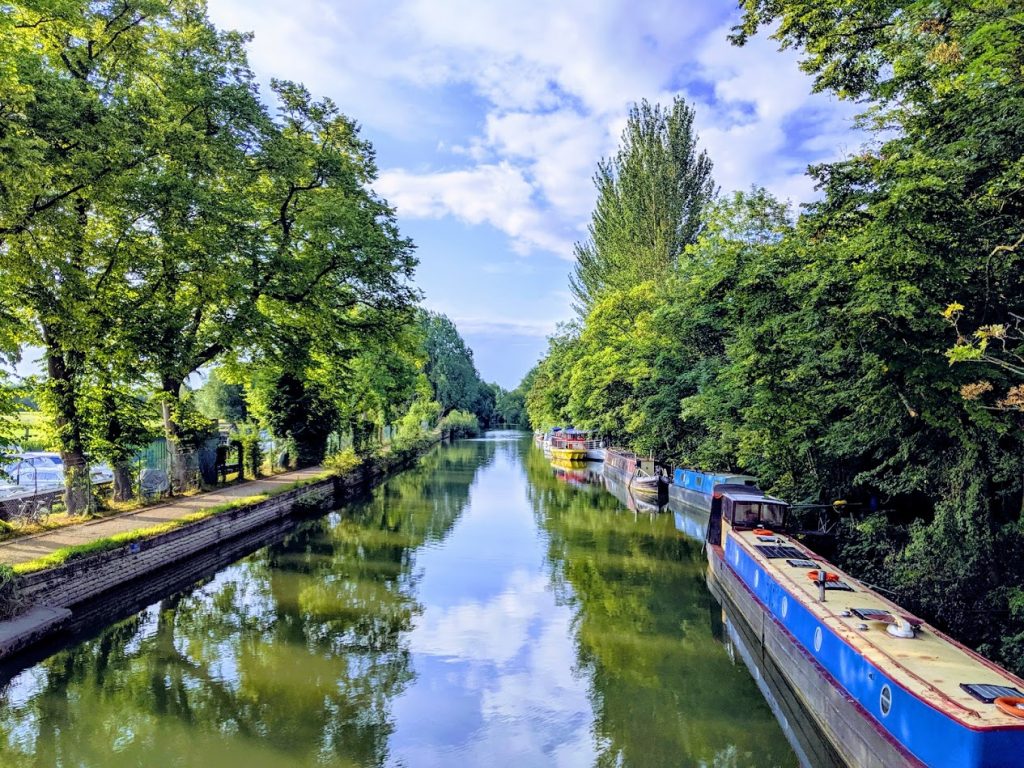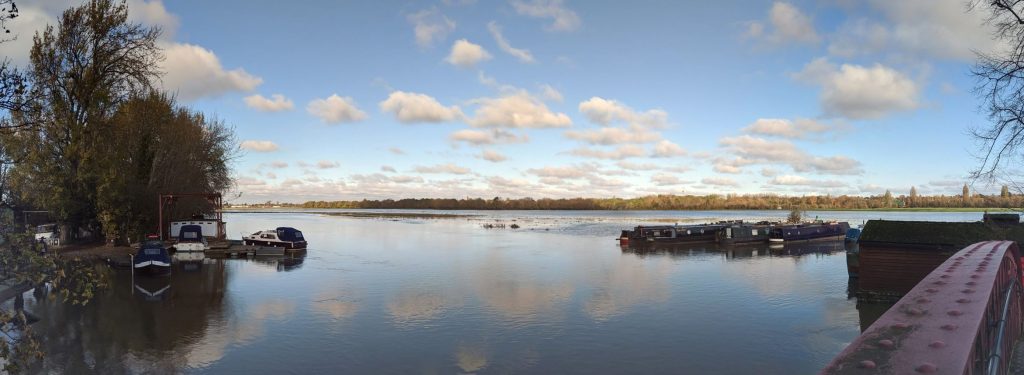Setting up a house in Auckland, friends and chance acquaintances alike were sceptical about the ease of living without a car. Auckland does have public transport, and while it is better than the locals might think, the reality is that infrastructure is built around the assumption of car ownership. Parking is free and plentiful, commercial and industrial parks are organised for the ease of large vehicles. The world needs to move away from the damage of fossil fuel consumption, as well as making transport healthier and more efficient. To help stimulate change, early adopters are needed to sacrifice convivence in order to blaze trails. It is time and energy consuming, but also rather satisfying.
2020 Week 9: Book thoughts
Some exciting breakthroughs at work leave less time for extracurriculars. Life is generally good.
Things I wrote this week
I finished writing some thoughts about The Lady Astronaut of Mars series by Mary Robinette Kowal.
Things to share this week
Twitter backlash can change a person’s life. In this 2015 New York Times Magazine article a person making jokes (in poor taste) to her 170 followers went viral and triggered an outpouring of public shaming. The internet makes the spread of information so fast and irreversible that I am fearful of making a mistake that lands me in infamy.
I learned about this glider that you can launch by running and I want one. (Video of it in action). Much of my excitement is driven by the possibilities of carbon neutral air travel. Related; this scientist has turned to tree planting to offset the emissions from his air travel.
Earth temporarily has two moons! (Technically a temporary satellite).
Bill Gates writes some sensible thoughts on COVID-19, he has been advocating better pandemic preparation for some time. I hope to write a longer piece on the virus soon.
2020 Week 7: Curfew
This week, in several situations, I ran out of time. By not setting end times for experiments, training sessions, or social occasions, I find myself realising on reflection that I regularly continue longer than would have been optimal. Of course the future is unknown, but making an estimate of how much time I ought to spend before I start, and then evaluating the situation once that time has elapsed, should help me to fit more into each day. This week’s longer post on productivity is highly relevant.
Things I wrote this week
I finished a set of thoughts on how to get more life into the fixed amount of time each day, i.e. productivity. Eventually I’ll reorganise the homepage of this website to have pages dedicated to a few significant topics, and I suspect productivity will be one of them.
Things to share this week
Atmospheric Optics collates visual phenomena that occur due to the spontaneous formation of optical systems in the sky, a common example being rainbows. Thinking about ice halos reminds me of X-ray crystallography, perhaps the most famous example being Photo 51.
Emma Stoye of Nature collated scientific photos from January, including the tracks from the head-crab like robots I shared a couple weeks ago.
The UK brought forward its ban on cars that burn hydrocarbons to 2035, some good news for the climate. I suspect unrelatedly, Telsa shares broke $1000 (and continue to be the centre of reddit shenanigans).
Artist Simon Weckert walked around with a cart full of smartphones to trick google maps into plotting non-existent traffic jams. Whilst I find google maps traffic useful on the rare occasions when I drive, I find the “performance” of having a bright red cart full of smartphones intruding into live updating maps a cute reminder of the difference between reality and abstractions.
Photos from the week
2019 Altmetric Top 100
Fires in the Amazon and Australia, a case of HIV cured, and the 50th anniversary of the moon landing, were all big headlines for science in 2019. This summary of the science that shaped 2019 from Nature covers a few more stories. There is not one clear metric to quantify the “biggest” story in science, but Altmetric creates a ranking based on the media (social and conventional) impact of scientific papers. I previously wrote about 2018’s Altmetric Top 100, and this year I take a look at the themes.
AI and Fake News
The top paper of 2019 was this description of a system developed at Samsung to create realistic video of talking heads from single images. The authors provided a video summary of the work, and the result is impressive and unsettling. AI image generation also took out the 5th slot with image generation.
While crossing the uncanny valley remains a challenge for visual effects artists, the strong emotional reaction to this paper is driven by a fear. As it becomes easier to fabricate content, it becomes harder to trust the media we consume. There is also the fear that we could become victims of these “deepfake” techniques. Fake news was the subject of the 51st ranked paper “Less than you think: Prevalence and predictors of fake news dissemination on Facebook” and the 58th ranked paper “Fake news on Twitter during the 2016 U.S. presidential election“. On fake stories making real news; the 44th ranked paper about the 44th President’s birth was pushed up the altmetric rankings as “The researchers avoided calling the subjects’ views ‘racist’, earning them a high-scoring Twitter roasting.”, highlighting how issues of race can drive a flurry of discussion on social media.
The world is on fire
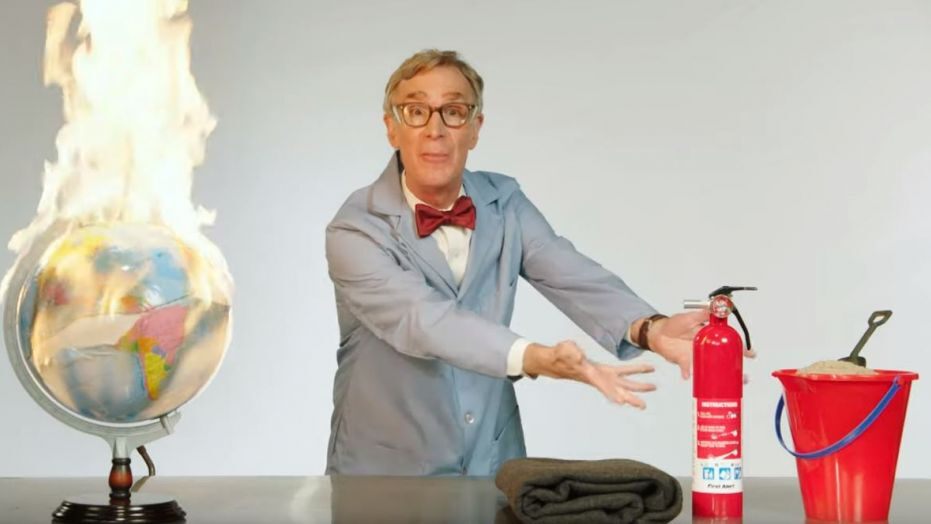
As Climate change continues to worsen so do its effects. If you’re not familiar with the scale of the problem I recommend this briefing; Global warming 101. About 1 in 6 papers in the top 100 were on or about climate change, with 3 of the top 10. World Scientists’ Warning of a Climate Emergency has an authorship exceeding 10,000, stating that “Earth is facing a climate emergency”, and highlighting the disturbing gap between the scientific and political consensuses.
Human Health
Just as health research makes up a huge share of scientific research projects, so too did papers on health make up a big share of the altmetric 100. Many of the papers featured are only surprising in the unwillingness of the public to conform to the recommendations. Vaccines work (and do not cause autism), exercise is good for you and most people need to do more, highly processed food and sugary drinks are bad for you, and eating only junk can lead to terrible health (including blindness).
In a moment of doctors showing that publications don’t have to be more complex than “check out what this guy just coughed up”, this cast of the right bronchial tree was coughed up and became this publication, ranking at 19th.
This highly discussed paper (74th) was retracted, demonstrating both that scientific papers (even in top journals) should be questioned, and that scientists are actively doing that questioning. The article relates to the He Jiankui affair that made headlines for the gene editing of human beings, however that work itself has not been formally published, and the scientist himself was sentenced to prison.
Scientists have fun too
“Joke” papers such as 8th ranked “Parachute use to prevent death and major trauma when jumping from aircraft: randomized controlled trial” and 61st ‘”Death is certain, the time is not”: mortality and survival in Game of Thrones‘ show that scientists (and critically, publishers) can have a sense of humour too.
Take Home Points
- With tools like google scholar and increasingly open access publishing, the scientific literature is becoming ever easier to consume.
- AI is becoming more powerful at image generation and manipulation, and will threaten the reliability of video footage as evidence.
- The climate has changed and the consequences are already being felt. Urgent action is necessary.
- Whilst advances in medicine are lessening the burden of diseases, educating the public to make good choices on vaccines, drug consumption, and nutrition would have an enormous impact on health.
- Publishers and reviewers have a sense of humour (requires further verification).
2019 Week 52: Retrospective Part 2
Short version: Thoughts on this year’s blog, and what is to come next year.
Long version:
Climate Catastrophe
Sydney, Australia, has a world famous fireworks display to mark the new year. This year, due to raging bush fires, there has been a call to cancel the display. This could only be symbolic, given that the contracts had been signed and the money paid. The fireworks went ahead. I think about the framing a former PM used, that climate change is “the greatest moral challenge of our generation”. That was 12 years ago. While a lack of economic literacy leads to the idea that the costs of the fireworks show could somehow be redirected to fight the fires, it is a deeper problem in human nature that allows the cost of dealing with climate change to grow impossibly in the future, rather than taking less painful action today. I feel another man made disaster gripping Australia, the obesity epidemic, to have similar roots.
It is difficult to think about the end of a year and the start of a new one without thinking about the scale of the challenges ahead. This briefing highlights how quickly time is running out to cut emissions. With governments in power across the English speaking world that so effectively wield tools of misinformation, I fear for our collective ability to make the right decisions. They are uncomfortable choices to make, but the consequences of ignoring them are going to be so much worse.
Reflection on 2019 Blog Posts
At the start of 2019 I wrote that “Last year I managed 11 posts out of 52 weeks for a 21% success rate.” It makes me proud to have hit “publish” for each week of 2019, though many came late. In total the posts came to a little over 30,000 words. They lack the quality and coherency of a novel or a thesis, but it has been a learning process, and reflects many of the topics I thought about in the last year.
Some favourites included:
In Week 38 I looked at the carbon costs in consuming New Zealand apples in the UK, which alongside Week 4 (on plant vs animal protein) are the two posts I’ve most often shared over a meal. Scientific content peaked when I focused on sharing papers, such as Altmetric in Week 8 and cover pages in Week 29. In Week 39 when explaining microwave ovens, I painfully came across the perfect article only after I had written most of the content. The data set I used writing about consumption in Week 48 was the most fun to explore.
Goals for 2020 Blog
The amount of content on berglabs as a whole has increased at least 5-fold in the last year. A reorganisation is due. It’s not easy to find content on the blog. Certain themes, like nutrition, or summaries of academic work, could be better grouped. I hope to reorganise the tags to make things a little easier to find. I aspire to write longer more coherent pieces, but cannot sustain that weekly, and so perhaps a monthly or quarterly essay to give more time to go deeper into a topic. A projects page may help me find collaborators, or pitch ideas that I would like to see in the world (inspired by Kevin Lynagh). I’ve also been toying with a page dedicated to people I think should be on pedestals, and a page announcing my values, the few things I believe to be clearly “good” or “bad”.
Photos of the Year
(click to expand)
2019 Week 43: Big Things
Short version: A few big things to talk about; nuclear war, bribes, engineered environments, mistakes, and courses.
Long version:
Big Problems
In Oxford I enjoy meeting people passionate about studies I might not have otherwise ever considered. This week I was introduced to ALLFED, a group who spend their time working out how to feed the population who survive a nuclear war. In the current political climate it can be both frightening and paralysing to think the fate of billions rests on the whim of a few individuals. Knowing some out there are trying to be prepared give me confidence that humanity can survive its own incredible destructive power. This work fits under the umbrella of Effective Altruism, which is persuasive (I have a few friends who are strong proponents) but also complex.
Big Presents
There is a common understanding that bribery is wrong, but it is not immediately obvious why. The answer I seem to find is that the central issue of bribery is when a person is able to take an advantage for themselves (the bribe) in exchange for acting against the external interests they represent (e.g. the university in the case of a college admissions administrator). Some examples:
This year a scandal broke regarding admissions to US colleges, where coaches were bribed to select students without athletic ability on an athletic basis. At face value the harm here appears to be a violation of meritocratic principles; students ought be selected on their talent rather than the wealth of their parents. In fact generally wealthy parents are able to have their students attend top universities despite their academic or sporting ability, via large donations to universities. The wrong here comes from the coaches personally profiting from the student’s admission, rather than the university itself.
In China large gifts were given by banks to politicians, and in Australia political donations by banks have been scrutinised, while the volumes of donations in the US are much higher. Cash donations, crystal tigers, coffee; for politicians these rarely come without strings attached. A journalist buying coffee or even a meal in exchange for an interview seems natural, a company paying a politician to be awarded a contract is graft. In between these, it is difficult to work out where courts or courts of public opinion ought to draw the line.
Big Artificial Environments
People have managed to make some incredible changes to their environment. This week The Wave opened in England, an artificial lake that generates artificial waves so that people can surf. There is also warm weather skiing on plastic and the more extreme indoor ski slope cooled to negative temperatures in hot Dubai. The football world cup will required air conditioned stadiums. All this gives hope that technology can repair the damage we are doing from burning fossil fuels, but also these feats of engineering require enormous amounts of energy themselves.
Big Mistakes
In my reading about health, smoking seems to be the worst decision a person can make. This week I saw some calculations about how smoking is a terrible financial mistake, in addition to the health costs.
Big Classes
This week I finished a Massive open online course (MOOC) on statistics, making it the first online course I’ve completed. Previous attempts, such as the biology course I started in Week 28, have been derailed by lack of interest or energy. I was particularly reminded of the importance of working in your Zone of Proximal Development by this line of mathematics.

Depending on your familiarity with logarithms, this may either appear indecipherable or trivial. I particularly remember encountering logs around the age of 15, and it being the point in my mathematical learning where maths stopped being intuitive. It was confronting to not find the subject easy. Unfortunately I couldn’t see or be shown how pushing past that initial discomfort would lead to valuable personal growth, and I moved away from mathematics to subjects I “felt I was better at”. I think the feeling of being overwhelmed, of being stuck, drives many people away from opportunities to grow and empower themselves, and it is a feeling I am still striving to become more comfortable with.
Photos from the week
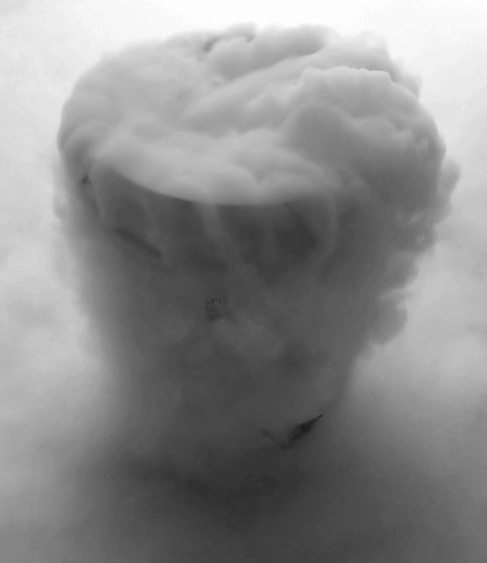
2019 Week 38: Food Miles and Mental Health
Short version: I ate an apple, which got me thinking about climate change. I’ve also been talking about mental health. Purdue went bust. Not every article with 300 citations is novel.
Long version:
Climate Economics: Food Miles
I was eating an apple, here in Oxford, and discovered from the oft mocked apple sticker that it had been grown in an orchard in New Zealand (on the other side of the planet). This struck me as a problem; surely the fuel in transporting food around the world is an externality contributing to climate change. I wanted to know the specific quantity of fuel burned to make this possible, and found this study from New Zealand university Lincoln that claims there is a smaller climate impact from consuming New Zealand apples in the UK compared with local ones. I am sceptical, and will hope to follow up on this in a later post, but the data is summarised in table 7.3 on page 72. Summarising and converting the units to equivalent millilitres of Diesel burned we get:
| Equivalent Fuel Burned (diesel in mL) per apple (assume 100 g) for: | NZ Apples | UK Apples |
| Direct energy consumption at orchard | 15.6 | 79.4 |
| “Chemicals” e.g. fertiliser pesticides | 12.9 | 17.6 |
| Shipping (NZ) and “Cold storage” (UK) | 65.2 | 44.8 |
| Total | 93.7 | 141.8 |
So New Zealand is much more efficient at producing apples (about 5x less energy per apple is needed at the orchard), which largely corresponds to better yield per area of land (at 50 tonnes vs 14 tonnes of produce per hectare in New Zealand and the UK respectively), but also is due to better use of renewable electricity generation in NZ (particularly hydroelectric, wiki links to UK and NZ). This energy difference is almost entirely closed by the fuel used in shipping, but the use of “cold storage” of apples in the UK emits a further 44.8 mL equivalent diesel burned.
In short, the study suggests that fresh apples in the UK cause the same emissions per apple as New Zealand apples shipped to the UK, but if the apples are kept in refrigerated storage then the UK apples have a worse impact on the climate.
One notable thing from this exercise is that when you buy a 20p apple at Tesco, you are also paying for about 15p of diesel that was burned to get it from the tree to you.
Climate Change
This week’s Economist cover is a graphic that describes the warming climate. Meanwhile this photo article from the Guardian (also this week) hit me emotionally. The climate is changing, and the effects are disturbing. Currently my approach is very ivory tower: observing and considering, but not actively campaigning. I have friends who are much more active in Green Political Parties and movements like Extinction Rebellion. I think it may be time to explore similar options. I could blog each week about climate change in an attempt to raise awareness, but I would be very surprised if any of my readers were unaware of the issues?
Mental Health
Last week my friend Jessy shared some insight from her time answering a crisis hotline (read on facebook or linkedin). At work we now have staff trained in mental health first aid. It is good to see mental health issues lose their stigma, even if it is a gradual process. I thought someone might find things I do to maintain good mental health useful.
Mental Health Tool kit
(or “Things I do that I think help me mentally”)
Have a plan: Be enrolled in a health care program, have a GP, speak to them about mental health. Know services in your area. Have hotlines in your contact list. (If you broke your leg or developed an odd growth you would know what to do, what if you broke your mind or developed an odd pattern of thoughts?)
Reflect: Write things down to get them out of your head. Write a couple words about how you feel each day somewhere. Notice if something keeps coming back. Even just putting information somewhere else helps me relax that I won’t forget it, so I can let it go even briefly.
Exercise: Match the mental stress with physical stress, release endorphins. “Get out of your mind by getting into your body”. Do something that makes you sweat for 10 minutes. Endorphins make you feel better. Matching the physical stress to your mental stress helps align how you feel. If you are physically worn out, you will sleep.
Sleep: Get good sleep. Put distractions far away. Passing out from alcohol is not sleep.
Eat Clean: Sugary oily foods (fast foods) taste great but make you feel terrible. You also know that they are bad for you so you feel guilty. Eating well makes you feel better.
Control: Organise your room. Go somewhere you want to (ideally under your own power like walking or cycling). You have so much freedom and power. Remind yourself of this by using it.
Breathe: Slow your breathing. Count four on the way in, hold for four, count four on the way out, hold for four, repeat until you don’t remember how long you’ve been trying this.
Mindfulness: Take some time to practice mindfulness (this is a skill that I can’t explain in a couple sentences, but I’d recommend trying the free sessions on Headspace).
Unplug: Go offline. You don’t need technology to survive. Switch off. Leave smart devices behind. Even leave your watch behind to lose track of time. Just be.
Purdue Pharma
On Monday Purdue Pharma filed for bankruptcy. Opiates are incredibly useful and powerful drugs, but are also addictive. The US over prescribed them, peaking at 81.2 prescriptions per 100 persons in 2010-2012. Those prescriptions and subsequent addictions and addiction related deaths are linked to the marketing of OxyContin in many lawsuits against Purdue Pharma. For a humorous take on a dire situation, see John Oliver (April 2019).
Quirks of Academia
A high school student in Australia recently published in a mathematics journal, and it made the news. I have read some slightly bitter comments along the lines of “so what”. There is a lot of pressure inside academia to publish papers (a metric of performance) and seeing a relatively simple result gain media coverage can inspire envy.
Tumbling down the rabbit hole led me to this (now defunct) blog, poking fun at Mary M Tai’s paper and claim to have developed a new method for finding the area under curves. That method may actually be over 2000 years old. That paper has 363 citations today (another metric of academic performance). I found this funny.
Photo from the Week
